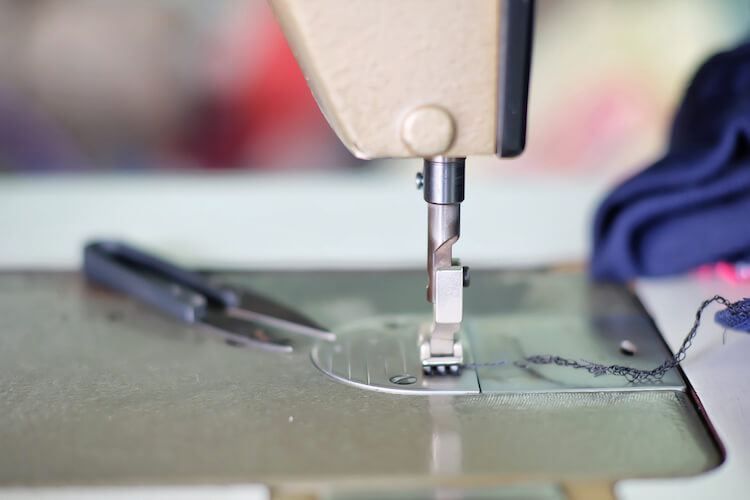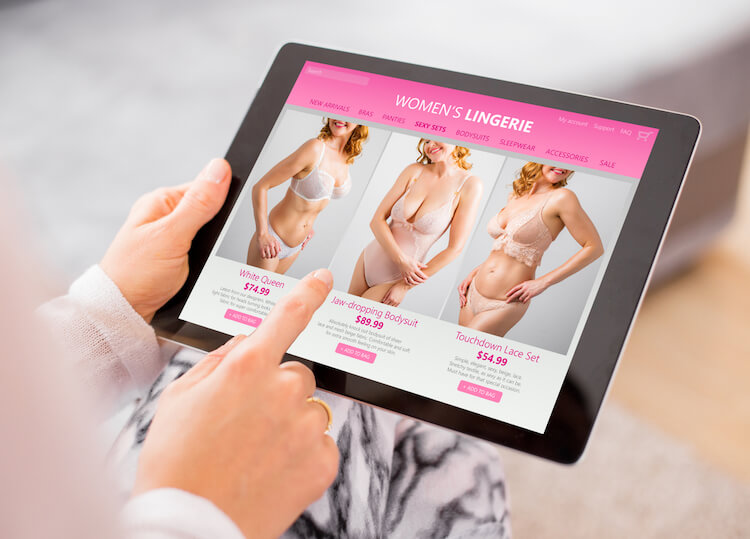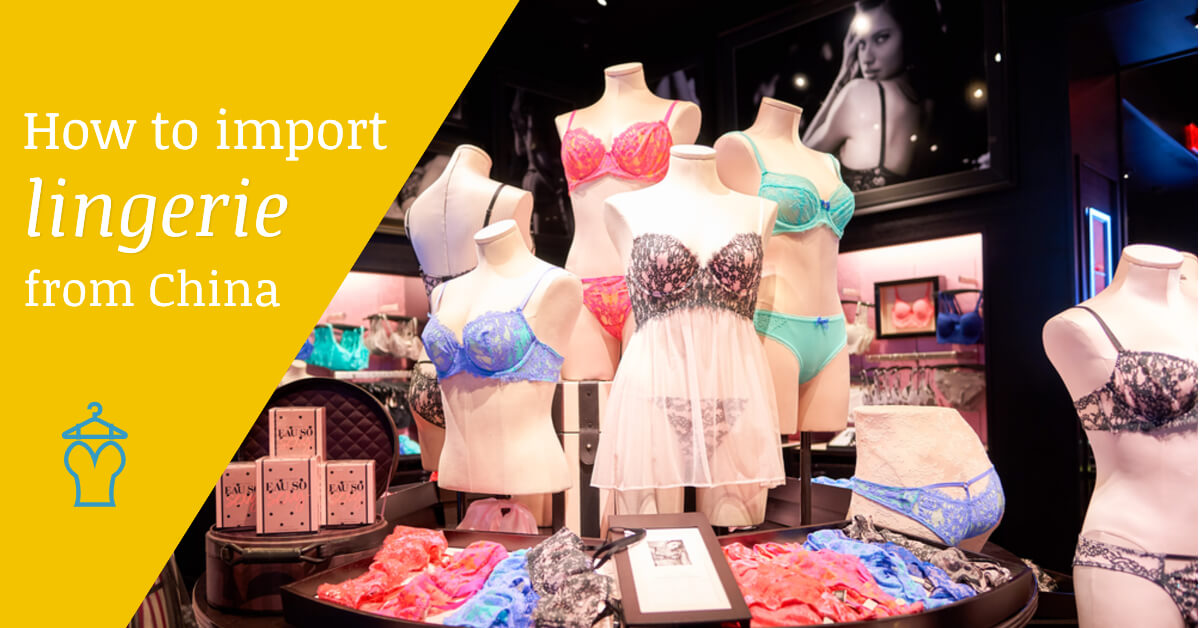If you wish to import high-quality lingerie from China for your business, read this article to know more about the process and the details that you have to consider.
Passionate about helping other ladies feel sexy? You can begin selling lingerie in a very short time by purchasing supplies from China. Starting your own small lingerie business may seem intimidating at first, but it is possible and totally doable!
We clarify everything you need to understand about lingerie manufacturers in China in this product guide.
We also clarify what you need to understand in the United States and the European Union about future quality problem, relevant labeling regulations and substance limitations for a hassle-free import experience.
Finding Lingerie Manufacturers in China
Plenty of Chinese distributors and manufacturers of lingerie are looking for business-to-consumer stores to help sell their goods. All you need to do is perform a little research to find them.
Work with reliable distribution partners and form strong relationships with them. They'll be a huge part of how you succeed with your store as you learn how to sell lingerie online.
But why import from China?
In importing lingerie to other areas of the globe, China dominates the ranking. 41% of total bra exports to the three major regions/country accounts from China.
China's export-oriented suppliers of lingerie are mainly focused in the country's main textile manufacturing centres like the Guangdong Province, Zhejiang Province, and Fujian Province.
If you intend to visit manufacturers in Mainland China, you are likely to find yourself in one of the following cities:
- Guangzhou, Guangdong
- Dongguan, Guangdong
- Quanzhou, Fujian
- Jinjiang, Fujian
- Shantou, Guangdong
- Yiwu, Zhejiang
- Zhongshan, Guangdong
How to Find the Right Manufacturers

In relative terms, lingerie is not a very capital-intensive industry. Manufacturers are then rather advanced in such "lower value-added" industries, requiring the purchaser to handle a process of strict quality assurance (QA).
Developing a comprehensive product specification is the first step in the QA procedure. There are, however, some useful cues for qualifying lingerie suppliers such as:
- Quality Management System / Production Lines Audit Reports (i.e., ISO 9001:2008)
- Social Compliance Certification / Audit Reports (i.e., Sedex and BSCI)
- Business Scope (As specified on the manufacturers business license)
- Environmental Audit Reports (i.e., ISO 14000 series)
- Registered Capital (As specified on the manufacturers business license)
- Substance Test Reports (i.e., REACH and Oeko Tex Standard 100)
Finding Chinese Lingerie Manufacturers Online

Alibaba.com or AliExpress are the top two online hubs where you can find manufacturers from China. There you'd discover loads of various manufacturers. On this third-party platform, buyers and suppliers communicate directly to do benefit.
However, there are also a lot of trading companies and sourcing agents on those platforms. Instead of finding a true manufacturer, you might encounter a trading company or agent instead.
It is recommended that you visit their own websites if you want to interact directly with a real manufacturer. But it can be hard, especially if you don't know where their websites are, or if they're valid or not.
Bossgoo.com is, therefore, an ideal platform to search for true Chinese manufacturers. You can search here for the products you will purchase and the websites of the distributors will be listed on the page.
You could also compare and find the one that best suits your requirements among these manufacturers.
Find someone who's making lingerie and see if they're going to create an intro for you. Reputable manufacturing companies do not react to cold calls.
Apparel manufacturing is an art that requires expertise, especially when it comes to lingerie, which is why there are a lot of risks when finding a good Chinese manufacturer for it.
Working with guys who have no previous experience is an enormous headache. Manufacturing relationships are one of a fashion designer's most precious stuff.
What to Consider When Importing Lingerie
After finding the right manufacturers for your lingerie business, here are the next things that you have to consider.
Design Drawing
The layout of the item can be based either on a current ODM (Original Design Manufacturer), SKU (Store Keeping Unit), or OEM (Original Equipment Manufacturer) specification. Although reference samples may be submitted, they are only complementary to the design sketch. These are the choices you have:
- The purchaser's layout sketch
- The design drawing the supplier has presented
All design components and sizes should be included in the design drawing.
Fabric
The simplest technique is to order from the supplier fabric samples or full units. Then the customer can freely choose the material of choice from the standard catalog of the supplier.
Another option is to submit fabric samples, which the supplier can match from their own standard catalog with a fabric. They can also weave the fabric entirely according to the buyer's specifications.
Reference sample
Either the supplier (when purchasing ODM products) or the buyer (when purchasing an OEM item) provides a reference sample. The reference sample, as stated above, is only complementary to a design drawing and not a substitute for it.
Size Table
The size table is a design drawing appendix that lists sizes for each size. It is also possible to customize ODM products by changing the size table accordingly. Dimensional tolerance must also be added to the size table
Labels
Lingerie is subject to labeling requirements for general textiles. Such labeling requirements vary from market to market. It is not wise to think that the supplier is familiar of your market's particular demands.
Therefore, the supplier must be provided with ready-made graphic files in.ai format. The most significant labels you should include are:
- Label dimensions (i.e., 15 x 30 mm)
- Batch ID
- Logo / Website
- Country of Origin (required in the United States)
- Washing Instructions and/or symbols
- The label can be printed on a double folded polyester patch or on the inside fabric.
Asking for Product Samples
It is encouraged for lingerie business owners to order samples from at least 4 suppliers. The failure rate (i.e., the percentage of manufacturers failing to construct acceptable samples of products) is usually at around 50%. Therefore, at least a handful of suppliers are required to make samples based on your tech pack.
Here are the most common things that tend to go wrong when manufacturing or importing lingerie:
- Wrong material
- Bad seams
- Bad fit
- Quality Assurance
- Incorrect / missing prints and labels
Common Quality Issues
Quality problems in textile manufacturing often arise from product specifications that are incomplete or inconsistent. Below is a list of prevalent quality problems when purchasing lingerie:
- Incorrect sizes or dimension
- Incorrect component position (i.e., double fabric)
- Incomplete seam lines
- Dirty and damages
- Incorrect/low quality materials
Quality Control
Quality inspection is aimed at defecting quality problems before packaging and shipping of the product. When you buy Lingerie from Chinese manufacturers, you must draft a protocol for quality inspection including the following methods:
- Fabric (i.e., Weight and Washing)
- Dimensions (i.e. Double fabric length)
- Visual Inspection (i.e., Dirt, damages, seams, and printed labels)
- Regulations and Compliance Testing
Underwear and lingerie in significant markets, mainly the United States and the European Union, are subject to multiple substance laws. Depending on your market, one or more of the following must be ensured:
FHSA (The Federal Hazardous Substances Act)
FHSA restricts the classification of multiple drugs, such as irritants or powerful sensitizers. This involves formaldehyde, a substance used by certain textile producers, among other substances. CPSC.gov provides a complete list of compulsory bans and limitations.
California Proposition 65
California Proposition 65 restricts in consumer products more than 800 substances. Products must either comply (i.e. have been demonstrated to be free of all limited drugs) or be labeled accordingly. If your business is based in California, or you are planning to sell in the state to consumers, compliance must be ensured.
REACH (Registration, Evaluation, Authorisation, and restriction of Chemicals)
REACH restricts the content of limited SVHC in textiles and other consumer products sold in the European Union. Hundreds of drugs are included in the SVHC list, including lead, cadmium and formaldehyde.
Conclusion
The best way to find manufacturers in China is to use a sourcing agency with a professional website, an internet presence, a true internet domain email address, a phone number, and skilled employees.
It's also important to find a business with a strong network connection to different manufacturers and suppliers in China. They should also be able to use tools such as Skype, WhatsApp, and Google Drive and video sharing to maintain you up-to-date with your production at all times. Find a buying agent that you can trust enough to leave your output in their hands.
Lazpanda is one of the trusted sourcing agent in China. In case you need help to efficiently import lingerie products from China, do not hesitate to contact us.
Import from China actually is not a simple task. If you are working with a sourcing agent like me, then you’re already way ahead of the game. But what if you’re one of the 99% of small business owners or Amazon sellers who are not familiar with importing from China. I want to share my sourcing expertise with you to help you grow business.

